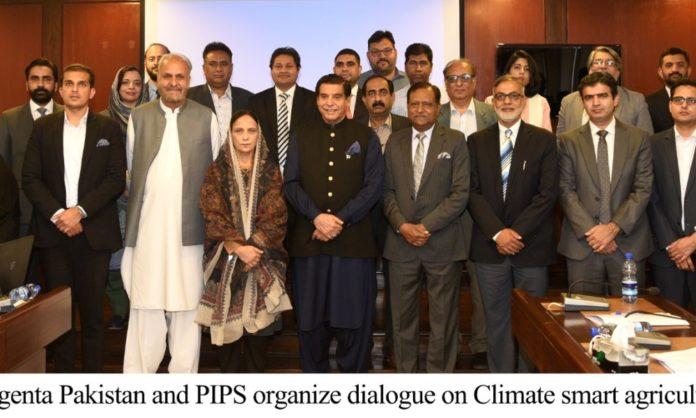In Pakistan, on March 7, 2023, Syngenta Pakistan and the Pakistan Institute of Parliamentary Services (PIPS) hosted a high-profile policy discussion on “Climate-Smart Agriculture and Food Security: Challenges & Way Forward for Pakistan” in Islamabad. The session brought together important stakeholders from the public, private, development, and academic sectors, including members of the parliament and representatives from the UN FAO, ADB, PMAS Arid Agriculture University Rawalpindi, and Quaid-e-Azam University Islamabad who stressed the need for action. The objectives of the session were to highlight the key challenges facing the country’s food security and identify viable solutions to mitigate these challenges in the context of climate change and to respond to the impacts.
Honourable Speaker of National Assembly, Mr. Raja Pervaiz Ashraf, graced the occasion as the Chief Guest and stated that “Pakistan has become highly vulnerable to climate change, and not because of our own doing, which is manifested in the form of recent super floods which had wreaked havoc on our agriculture. It is essential that we protect our agriculture against climatic shifts and utilize sustainable practices to improve our climate resilience. We are at a turning point in our history. It is through persistence and resilience that we will overcome all the changes that our nation is currently facing.”
Senator Seemi Ezdi (Chairperson Senate’s Standing Committee on Climate Change) was of the view that “Women in Agriculture have an important role to play in ensuring the food security of the country. Most of the labor force in the agriculture sector constitutes of women workers. While it gives us food for thought to upskill the female labor force in agriculture, it also is an indication of promoting more female farmers who are equipped with the latest technologies for dealing with climate change and productivity issues.”
Dr. Shahida Rehmani, an MNA, praised the timely initiative taken by Syngenta Pakistan and the Pakistan Institute for Parliamentary Services and expressed the hope that: Without a doubt, the Roundtable Report will assist Parliamentary committees in advocating for and supervising the formulation of national policies on climate-smart agriculture.
The speakers underlined the importance of coordinating efforts to address the country’s intersecting issues of climate change, food insecurity, water scarcity, and rising temperatures. They valued the policy conversation because it served as a useful point of reference for the discussion of climate action and helped them better comprehend the ideas of “climate-smart agriculture” and the relationship between food security, climate change, and sustainable agriculture.










































